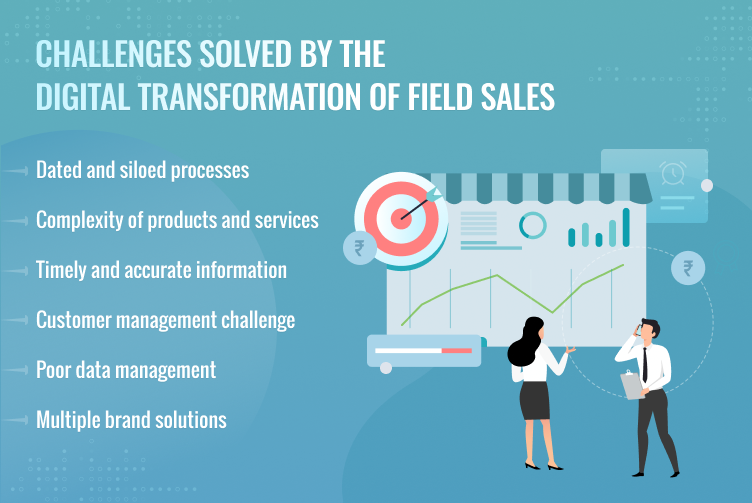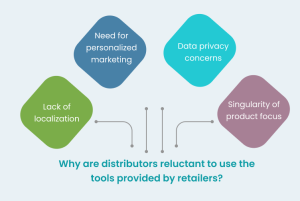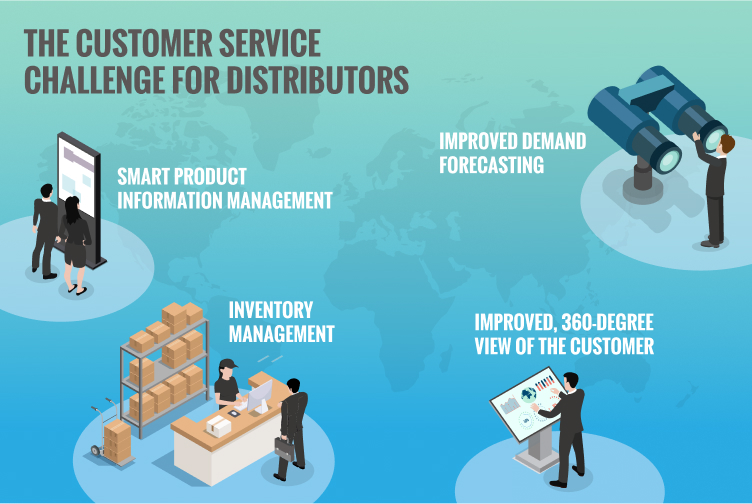We are now firmly placed in the digital age where constantly shifting market demands and customer needs are causing products, services, and business models to evolve at a lightning pace. Digital transformation of enterprise processes and sales does not come as a surprise. In fact, it is now of strategic importance. As other parts of the enterprise digitally transform, so does the sales process. But what about field sales?
Field sales need digital transformation
Digitally transforming the field sales process brings with it a host of benefits. While increasing sales and revenues are the obvious ones, greater control of sales teams, improved operational efficiency and higher team performance are other benefits.
Digital transformation of the field sales process puts sales on steroids. It helps organizations leverage market opportunities faster, reduce inefficiencies, improve collaboration, and elevate customer service.
What does digital transformation of field sales entail?
Digital transformation of field sales does not just involve a focus on optimizing the processes and the tools ecosystem. It also involves developing the capacity to respond to customer needs faster, gain deeper market insights, optimize demand forecasting, and remove silos between sales, field sales, and the indirect/channel sales force as well.
Challenges solved by the digital transformation of field sales
Some of the challenges that digital transformation of field sales solves are:
Dated and siloed processes
The goal of digital transformation is to help organizations improve their outcomes and bottom line. From the field sales perspective, digital transformation optimizes processes and makes them interconnected for greater transparency.
Digital transformation of field sales allows teams to connect multiple data points in the entire sales ecosystem which includes the supplier and distributor network, channel partners, etc. to facilitate smoother information exchange and always access the correct and updated information.
It also helps field sales teams to increase efficiencies as it allows organizations to automate time-consuming and effort-intensive tasks like those of data collection and data entry.
The complexity of products and services
The complexity of products and services especially in the B2B domain makes inventory management more complex and time-consuming. Field sales agents need clear insights into distributors, and channel partner inventories to identify product performance and optimize demand forecasting.
With digital transformation, inventory and opportunity management becomes easier, less time-consuming, and more efficient. A digital solution for field agents should consider the inventory and opportunity management needs of the distributor, reseller, and channel partner network as well. This allows them to them improve their processes, gain deeper and clearer insights, simplify information management, and exchange and facilitate opportunity discovery and management.
Timely and accurate information
Given the complexity of the entire B2B ecosystem, access to timely and accurate information separates successful field sales from those that are not. Dated or manual processes can often be error-prone and present incomplete information because most distributors, partners, etc. support multiple products from different brands.
Brands as such, need a comprehensive tool that connects the entire field sales network to the distributors, channels sales, partners valve chain, and different systems to capably provide timely, detailed, and accurate information whenever needed.
With this information, it becomes easier to identify areas of improvement, and high-performing areas to drive better revenues. Real-time information into areas like inventory, product performance, etc. can be absolute game changers for brands and help them take calibrated moves to improve and accelerate field sales opportunities.
The customer management challenge
Delivering smooth, intuitive, and elevated customer experiences in an increasingly competitive world is a well-desired skill in the B2B field sales landscape. However, along with external clients, brands must ensure that their external network of distributors and channel partners can also deliver the same.
As the B2B buyer demographic changes, it is becoming essential for brands to enable their entire field service network to get a clear 360-degree view of their buyer persona. Clarity into customer journeys and preferences also becomes an important stepping stone to improving customer management, enabling personalization, and identifying and leveraging market opportunities.
Digital transformation of field sales ensures that the customers are not subject to choppy customer journeys and experiences. The right platform provides clear and deep insights into customer behaviour and buying patterns and allows field sales to provide the right value adds, identify personalization opportunities, and capably stay on top of the mind of the customer.
Poor data management
Data management, insights, and analytics are essential capabilities that allow organizations to optimize business outcomes. Those operating in the B2B space can find this challenging in the absence of clear, connected processes that seamlessly connect all the dots of the field sales ecosystem.
Connecting the entire field sales ecosystem which includes sales channels, sales data, stock movement, schemes, etc. across brands, products, distributors, suppliers, and partner networks is vital for improved opportunity management and optimized sales.
Delivering complete and detailed information on customized products in real-time, and detailed, comprehensive, and real-time data insights across all the influencers of the value chain becomes a crucial enabler of revenues.
Multiple brand solutions
Organizations need to address a key concern of the distributor and supplier network to ensure a complete digital transformation of the field sales process. Given the support of multiple products and brands, implementing one solution for each brand becomes complex and expensive.
As such, they need a comprehensive centralized platform that allows them to manage multiple brands from one space. Digital solutions for field sales must allow the network to create knowledge-based customized workflows that connect the distributor to merchandiser, merchandiser to mechanics, and, at last, reach the top users.
In Conclusion
A user-friendly, mobile-optimized, centralized platform simplifies the field sales process in today’s complex market and business environment. It ensures that field sales agents can manage their time better, be more productive, have more clarity and detailed insights to drive better decisions, and capably leverage market opportunities.
As product customizations become increasingly commonplace, a comprehensive solution allows field sales to standardize processes, manage SKUs and data taxonomies easily and manage schemes and promotions across the entire network easily.
Digital transformation allows brands to simplify the entire field sales process and connect the right dots across the entire field sales network for deeper insights and greater clarity. Optimized sales and revenue outcomes emerge as organic consequences of this move. Let us show you how to enable and empower your field sales teams and distributors with powerful digital solutions.




